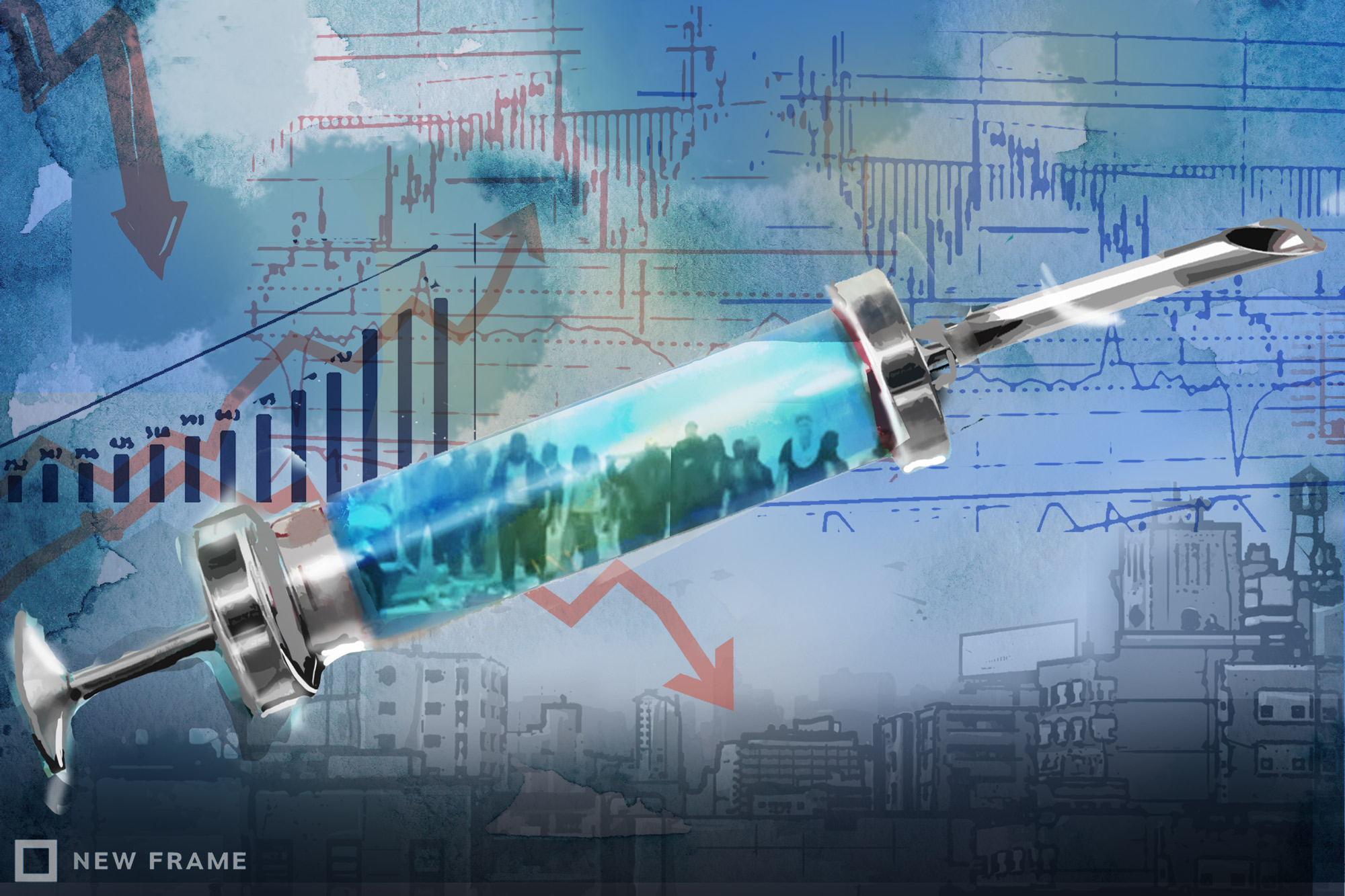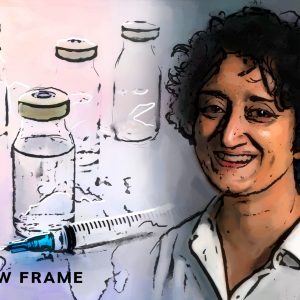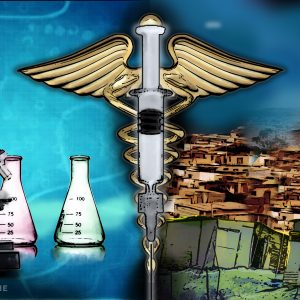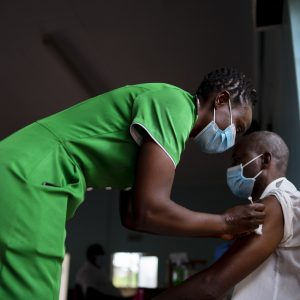Pricing a life-saving vaccine during a pandemic
The revelation that South Africa would pay more than double for AstraZeneca’s Covid-19 vaccine prompted a flurry of questions. But what are the issues involved in vaccine pricing?
Author:
9 March 2021

In late January, Anban Pillay, a deputy director general in South Africa’s Department of Health, revealed that South Africa would pay more than double the price paid by the European Union (EU) for AstraZeneca’s Covid-19 vaccine. This set off a flurry of questions on how vaccine prices are set and why, in many cases, the prices are not known to the public.
While South Africa shared its price publicly, the prices paid by the EU are only publicly known owing to an accidental tweet of the EU’s price list by Belgium’s budget state secretary, Eva De Bleeker.
Pharmaceutical companies have provided a range of justifications for charging different countries different prices for the same vaccines. These justifications include the income level and size of procuring countries, the provision of public investment towards vaccine development and manufacturing scale-up by countries, the timing of orders and delivery, and the willingness of buyers to maintain price secrecy.
While these justifications may sound rational and even fair at face value, they often do not hold up against evidence of what countries are actually paying.
Keep your prices secret and you will get the best deal
The New York Times recently reported on the extensive confidentiality commitments that companies are seeking in contracts with governments for Covid-19 vaccines, including confidentiality regarding the price paid per vaccine dose. Matt Apuzzo and Selam Gebrekidan wrote in the paper that “the companies consider [price] a trade secret”. “Some drug companies have included clauses in their supply contracts that allow them to suspend deliveries if countries reveal the price.”
Apuzzo and Gebrekidan added that “by insisting that their pricing remains confidential, the drug makers have the upper hand over government negotiators who do not know what other countries are paying”.
Related article:
Els Torreele, visiting policy fellow at the University College London’s Institute for Innovation & Public Purpose, says, “Pharma has very successfully made everyone believe that you get a good deal if you keep your prices secret. They have played this game for many years and they are doing it again now.”
While companies have long pushed for price secrecy, the urgency of the pandemic may lead even more countries to acquiesce to this demand in their negotiations for vaccines. “Everyone is so under pressure that they want to believe, they want to get the best deal, there is no time, and they don’t feel that they have much leverage in the negotiations,” says Torreele.
‘Not true’
Fatima Suleman, previous chair of the South African National Medicines Pricing Committee and professor at the WHO Collaborating Centre of Pharmaceutical Policy and Evidence-Based Practice at the University of KwaZulu-Natal, says that, “This idea of don’t tell your price because you are getting the best price and no one else is getting that price is actually not true.” (The Medicine Pricing Committee is a statutory committee empowered to recommend regulations to the minister of health on medicine price transparency and other aspects related to medicines pricing in South Africa.)
“African countries have been held to these non-disclosure agreements many times before, believing that they are getting the best price, and then they learn that wealthy countries are actually getting lower prices than they are,” she says.
Suleman says that “at the very least, governments should be able to talk to each other about what they are paying”. She also notes that governments should be able to be more open with the public about their negotiations, as pharmaceutical companies often use the media to encourage patient groups and the public to pressure governments to accept high prices as the only way to secure access.
Are prices related to countries’ income levels?
Pharmaceutical companies sometimes use “tiered” or “differential” pricing whereby they sell a medicine for lower prices in poor countries than in wealthy countries. On one level, the logic of this is sound – letting poorer countries pay a lower price means more people in those countries can have access to the drug in question. On another level, those opposed to tiered pricing might argue that it is still the pharmaceutical companies that are setting the prices (mostly unilaterally) and there is no guarantee that the prices are fair or justifiable. In addition, without price transparency, it is generally difficult to establish how prices in actual fact differ between poor and wealthy countries.
“The pharmaceutical industry tells us that we have a global differentiated price market. They tell us that there is a different price for high-income countries versus middle-income countries versus low-income countries and that poorer countries pay less,” says Suleman. “Yet, when you look at certain baskets of medicines, and people have done that research, you see that African countries are actually paying more than the United States or EU for some medicines.”
Related article:
A comparison of the prices shared by the African Union with those leaked for the EU shows that African countries are being charged more per dose for the AstraZeneca and Johnson & Johnson vaccines than EU countries ($3 vs $2.16 and $10 vs $8.50, respectively) and less for Pfizer’s vaccine ($6.75 vs $14.70).
Rwanda’s President Paul Kagame recently highlighted the challenges faced by African countries in securing affordable prices for Covid-19 vaccines when he wrote in The Guardian that, “The rich world can help developing countries get the same fair prices that they have already negotiated for themselves.”
Does public investment get you a lower price?
A recent study published in The Lancet medical journal reported that pharmaceutical companies and other vaccine developers have received around $10 billion in public and philanthropic investment towards the development of Covid-19 vaccines. Johnson & Johnson, for example, has received around $1.5 billion from the US government and Pfizer (together with BioNTech) has received approximately $445 million from the German government. The study authors explain that for Covid-19, “Governments and non-profit organisations have financed clinical trials, invested in the building and expansion of production facilities, and established contract manufacturing and distribution networks to enable the rapid rollout of successful vaccines.”
While pharmaceutical companies have long argued that they must charge high prices for new medicines in order to recoup their research and development (R&D) costs, health economists and access advocates are increasingly shining light on the dependency of private companies on this kind of publicly funded R&D. They argue that ownership and prices of new medicines must reflect these public investments.
In a distorted recasting of this public interest argument, it now seems that countries who could not contribute to Covid-19 R&D are being charged higher prices for vaccines.
Related article:
In January, Pillay told the media that, “The explanation we were given for why other high-income countries have a lower price [for the AstraZeneca vaccine] is that they have invested in the R&D, hence the discount on the price.” And according to December 2020 reporting in The New York Times, the US Department of Health and Human Services noted that early financial investments by the EU into Pfizer’s vaccine development may be why the block secured lower prices than the US for the company’s vaccine ($19.50 vs $14.70 per dose).
Torreele questions whether countries are actually receiving lower prices reflective of their public investments. “We know very well what many have invested and if you see the range of prices, what they are charging doesn’t make sense based on this argument.” She adds, “It fits the narrative that if you paid for investment you don’t have to pay twice, but it is this kind of perverse strategy of twisting the argument to their advantage.”
Suleman says that while public investment is one factor that should be considered in determining prices, this factor must be considered in addition to multiple other factors. “The pharmaceutical companies want us to think of this in simplistic arguments, but you just can’t think in terms of one or two criteria,” she says.
Suleman argues that you cannot consider financial investments alone. She points out that some of these companies did clinical trials in South Africa and are using data from here to show efficacy in diverse populations in order to get their products registered in Europe and the US. “So, doesn’t that mean that there has been an investment of human resources toward vaccine development from South Africa?” she asks.
Other price justifications
In addition to public investment, income level and willingness to provide price confidentiality, countries have been told that the timing of orders and delivery impacts price. Israel, for example, paid a premium of $23.50 per dose for Pfizer’s two-dose vaccine to secure early access. (The country also committed to supply patient data to the company.)
Governments have also been told that the size of orders impacts price. In response, countries have come together in buying groups to improve their bargaining power and secure more affordable prices. The EU, for example, bought vaccines as a block, and the African Union is now jointly procuring vaccines for member countries.
Related article:
Further compounding price confusion are companies that have committed to not-for-profit pricing – such as AstraZeneca and Johnson & Johnson – which are charging different prices across eligible countries.
Suleman notes that the different justifications put forward for the prices charged “are kind of the pat answers, but they don’t really clear the obscurity around how prices are set”. “If there is a legitimate basis for the prices charged, then let’s be clear about it and provide the evidence to back it up,” she says.
Entrenched power dynamics
“Covid-19 vaccine prices reflect what it has always been about: power dynamics,” says Torreele. “When you have monopolies or scarcity, then it is all about power. What the public and politicians realise now is that, despite massive public investments received by companies, all the power for vaccine price setting has been left in the hands of private companies,” she says.
“What has happened in the past is there [was] a very inequitable power distribution and it has all been on the pharmaceutical manufacturers’ side,” says Suleman. She notes however that “more and more as governments and countries are talking to each other, and as there are global forums to talk about these issues, countries are beginning to understand that they have power as well – as investors and purchasers”.
Related podcast:
Torreele says that if there was greater transparency regarding the prices paid by countries, and if companies were forced to open their books to demonstrate how prices are actually set, then things would be much better.
The need for greater pricing transparency is in fact already widely recognised. In May 2019, less than a year before the Covid-19 pandemic swept across the globe, the World Health Organization’s World Health Assembly passed a resolution titled “Improving the transparency of markets for medicines, vaccines, and other health products”. Among others, the resolution urged member states to “take appropriate measures to publicly share information on the net prices of health products”. While sending a strong signal in favour of transparency, the resolution did not create any legally binding instruments and accordingly, the relative lack of transparency on the prices of Covid-19 vaccines, 22 months later, is not all that surprising.
Can South Africa withstand pressure for price secrecy?
Claire Waterhouse, advocacy coordinator for MSF Southern Africa, recalls how the South African government resisted when, in 2017, South Africa was seeking to negotiate a price with Roche to provide the breast cancer medicine trastuzumab in the public sector.
“South Africa was told by Roche that the public sector could get a reduced price for trastuzumab only if it agreed to keep the price paid a secret, so that other countries did not demand the same low price,” says Waterhouse. (Other poorer African countries had recently committed to buying trastuzumab from Roche at higher prices than those being offered to South Africa.) According to Waterhouse, South Africa rejected Roche’s offer and with strong public pressure and sustained negotiation could secure the lower price from Roche without yielding to price secrecy demands.
Suleman explains that South Africa’s commitment to medicine price transparency stems from its strong regulatory framework requiring transparency of medicine prices. In 2004, South Africa introduced regulations requiring that companies charge a single price for their medicines in the private sector (known as the Single Exit Price [SEP]) and that this price is transparent.
Related article:
Suleman adds that pricing policy experts have held the Department of Health to the same accountability standards, and the prices of medicines procured through tender are also routinely made public. (Medicine tender prices however recently disappeared from the Department of Health website, following the site’s redesign).
Andy Gray, senior lecturer of pharmaceutical sciences at the University of KwaZulu-Natal, adds that Treasury regulations require that the prices of medicines bought under tender are transparent. However, the typical requirements for price transparency do not come into play for Covid-19 vaccines.
“Many of Treasury’s requirements have been waived in the case of Covid-19 procurement, and as none of the vaccines are registered as yet, no SEPs have been declared,” Gray explains. “Medicines imported under Section 21 authorisations are also not subject to the SEP, as they are not registered and marketed in the usual way.”
Related article:
Suleman notes the need for greater inter-linkages between the National Medicines Pricing Committee and the South African Health Products Regulatory Authority to ensure oversight of prices paid for medical products imported under Section 21 authorisations. “Items coming in under Section 21 or special dispensation that have a price attached to it need to be transparent and need to be accountable,” she says.
Gray adds that while requirements for transparency under SEP and Treasury regulations may not come into play for Covid-19 vaccines, “transparency of vaccine prices remains a Constitutional imperative”. According to Section 217 of the Constitution of South Africa, when the state contracts for goods or services, “it must do so in accordance with a system which is fair, equitable, transparent, competitive and cost-effective”.
The national Department of Health did not respond to questions on whether it has faced or is facing pressure to provide price confidentiality from companies, how it negotiated price transparency for AstraZeneca’s (procured from the Serum Institute of India) vaccine, and whether it would ensure that all prices paid for Covid-19 vaccines would be made public.
This article was first published in Spotlight.







